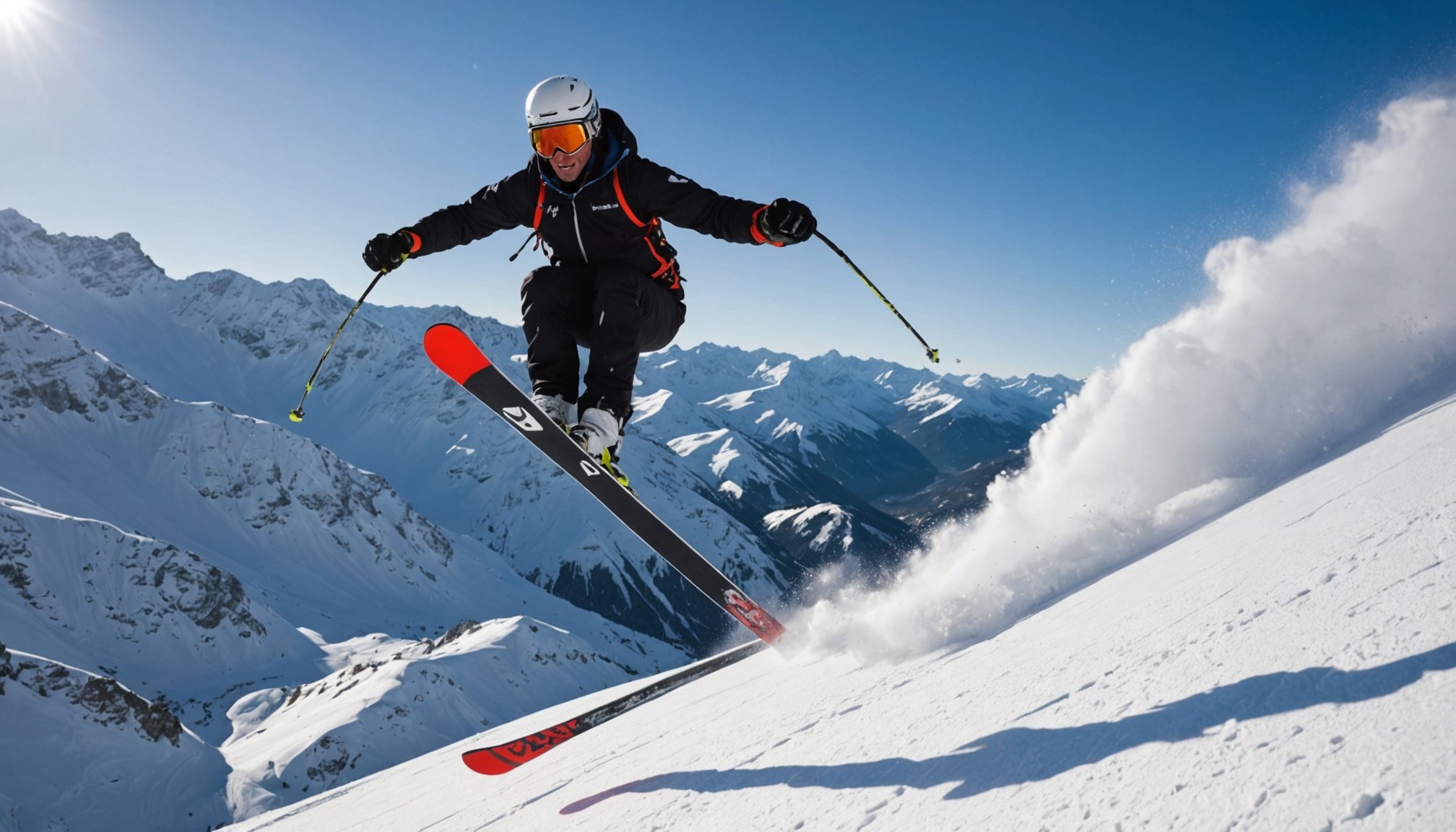Mastering Fear: Essential Mental Techniques for Professional Skiers Conquering Big Jumps
Understanding Fear in Skiing
Fear is an inherent part of any extreme sport, and skiing, particularly when it involves big jumps, is no exception. For professional skiers, managing fear is not about eliminating it entirely but about learning to navigate and harness it to improve performance. As Kristen Ulmer, a renowned extreme skier, notes, “Fear is not something to be feared; it’s something to be understood and utilized.”
The Psychology of Fear
Fear is a natural response to perceived danger, and in skiing, this can manifest as a fear of injury, fear of failure, or even fear of the unknown. According to Gary Mack, author of “Mind Gym: An Athlete’s Guide to Inner Excellence,” the mind plays a crucial role in performance, and fear can either hinder or enhance it, depending on how it is managed.
Also read : Score huge winter discounts on the best orby guns!
Building Mental Resilience
To conquer big jumps, skiers need to develop mental resilience. Here are some key strategies:
Developing a Positive Mindset
- Focus on the Process, Not the Outcome: Instead of worrying about the result, focus on the steps needed to execute the jump perfectly. This mindset shift helps in managing anxiety and staying present.
- Visualization: Visualize yourself successfully completing the jump. Visualization techniques can enhance confidence and prepare the mind for the physical challenge.
- Positive Self-Talk: Encourage positive self-talk to counteract negative thoughts. For example, instead of thinking “I hope I don’t crash,” focus on “I am well-prepared and capable of this jump.”
Managing Fear Through Breathing and Relaxation
- Deep Breathing Exercises: Deep breathing can calm the nervous system and reduce stress. Before a jump, take a few deep breaths to center yourself.
- Progressive Muscle Relaxation: This technique involves tensing and relaxing different muscle groups to release physical tension.
Overcoming Fear: Practical Strategies
Breaking Down the Fear Barrier
- Gradual Exposure: Gradually expose yourself to the fear by starting with smaller jumps and progressively increasing the height.
- Building Confidence: Celebrate small victories along the way. Each successful jump, no matter how small, builds confidence and reduces fear.
Leveraging Mental Performance Coaching
Mental performance coaching can be a game-changer for skiers. Firms like CEP Mindset, founded by Dr. Cassidy Preston, offer personalized strategies to help athletes get into the “ZONE” and achieve consistent elite performance. Here’s what Dr. Preston emphasizes:
Also to read : Unlock massive savings this winter on top-rated orby guns!
“Our priority is to connect and understand each client and the unique challenge they are facing. From there, we create practical and personalized strategies that deliver repeatable and reliable results.”
Real-Life Examples and Anecdotes
Kristen Ulmer’s Approach to Fear
Kristen Ulmer, known for her fearless approach to extreme skiing, has a unique relationship with fear. She advocates for feeling fear but not letting it control you. In her book “The Art of Fear,” Ulmer explains that fear is a natural part of the process and should be acknowledged rather than suppressed.
“The key is to be willing to feel fear and to understand that it’s a part of the experience. When you acknowledge and accept fear, you can begin to work with it rather than against it.”
Madison Rose Ostergren’s Journey
Madison Rose Ostergren, a professional skier, has spoken about the mental challenges she faces, particularly the fear of missing out and the fear of injury. In a podcast, she discussed how she manages these fears by focusing on her rehab expectations and understanding whether the pain she experiences is “good or bad”.
The Role of Team and Community
Support from the Ski Team
Having a supportive team can significantly impact a skier’s mental health and performance. Team members can provide encouragement, share experiences, and offer advice on managing fear.
Mentorship and Guidance
Mentors and coaches play a crucial role in helping skiers overcome fear. They can provide guidance on mental techniques, offer reassurance, and help skiers develop a growth mindset.
Table: Comparing Mental Techniques for Managing Fear
| Technique | Description | Benefits | Challenges |
|---|---|---|---|
| Visualization | Visualizing the successful completion of a jump | Enhances confidence, prepares the mind for the physical challenge | Requires consistent practice to be effective |
| Positive Self-Talk | Encouraging positive thoughts to counteract negative ones | Boosts confidence, reduces anxiety | Can be difficult to maintain in high-pressure situations |
| Deep Breathing Exercises | Calming the nervous system through deep breathing | Reduces stress, centers the mind | May not be effective for everyone, especially in intense fear situations |
| Gradual Exposure | Gradually increasing the height of jumps to build confidence | Builds confidence, reduces fear over time | Requires patience and a structured approach |
| Mental Performance Coaching | Personalized strategies to achieve consistent elite performance | Provides tailored advice, enhances performance | Can be costly, requires commitment to the coaching process |
Practical Insights and Actionable Advice
Creating a Comfort Zone
- Step Out of Your Comfort Zone Gradually: Don’t try to tackle everything at once. Gradually increase the difficulty of your jumps to build confidence.
- Practice Regularly: Consistency is key. Regular practice helps in building mental and physical resilience.
Maintaining Mental Health
- Balance Life and Skiing: It’s important to maintain a balance between your skiing life and personal life. This helps in reducing overall stress and managing fear more effectively.
- Seek Support: Don’t be afraid to seek support from mentors, coaches, or even mental health professionals if needed.
Mastering fear in skiing, especially when it comes to big jumps, is a journey that requires patience, practice, and the right mental techniques. By understanding the psychology of fear, building mental resilience, and leveraging practical strategies, skiers can overcome their fears and achieve peak performance.
As Kristen Ulmer puts it, “Fear is just a part of the experience. It’s how you choose to relate to it that makes all the difference.” By embracing fear and using it as a tool for growth, skiers can push beyond their limits and achieve greatness.





